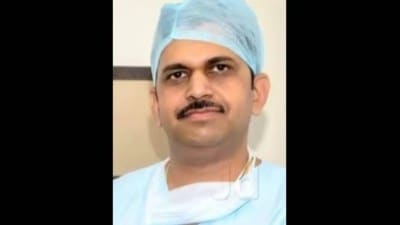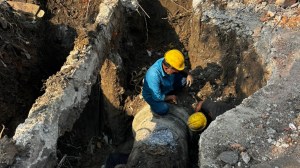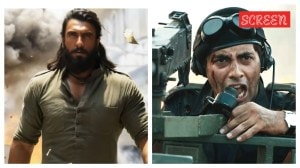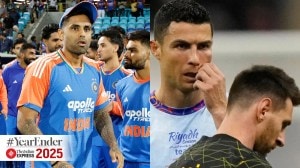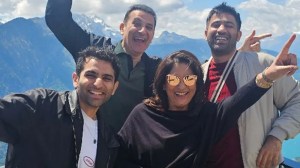Relevance of devolution
There are only two solutions to the ethnic problem in Sri Lanka partitionor devolution. Partition would mean a two-nation theory for the i...

There are only two solutions to the ethnic problem in Sri Lanka partitionor devolution. Partition would mean a two-nation theory for the island: thatthe Sinhalas and the Tamils constitute two separate nations, incompatible,irreconcilable and, therefore, to be separated. Like Pakistan and India. Infact, worse. For, thereafter, there would be those, in India as in Eelam,seeking the disintegration of India in the cause of a single Tamil nation.And they would be assisted by the most ruthless terrorist organisation oursubcontinent has known.
Devolution would mean the recognition that while Tamils and Sinhalas canshare a common nationality, such a nation has to be based on the fundamentalprinciple of unity in diversity. The constitutional expression given inIndia to the principle of unity in diversity is our Union of States. In SriLanka, it has to be a Union of Regions.
This elementary truth, alas, has escaped all the rulers of Sri Lanka exceptone the present President, Chandrika Kumaratunga. Ever since she becamePresident, she has been pressing for constitutional reforms which would givethe Tamils the identity, autonomy and self-rule and enable them to run theirown affairs while securing to them their civic and political rights, and,most important, their human rights, as equal and honoured citizens of theisland, free to lead a life of dignity and safety. Her intention was to workout these constitutional reforms in consultation with the LTTE and otherTamil groups.
The LTTE initially indicated some willingness to come to the negotiatingtable but then quickly reneged.
She, therefore, went ahead with fashioning a constitutional package on herown. This was ready three years ago. She did not, however, have the requiredtwo-thirds majority in parliament to carry through these reforms on thestrength of her party alone. She needed the cooperation of her mainpolitical opponent, the UNP led by Ranil Wickramasinghe. That cooperationhas been as consistently denied her by the UNP as by the LTTE. She,therefore, went to the polls prematurely in the hope of securing a mandatefrom her people to push through the reforms on her own. She won theelections, but not the majority required to amend the constitution. Thus shestands thwarted in her bid to do the right thing.
The Sri Lanka military in Jaffna is now under siege. The war, however, isfar from over. The Jaffna town is not the Jaffna peninsula. And Jaffna isnot separated from the rest of Sri Lanka by thousands of miles, as EastPakistan was from West Pakistan. To expect the Sri Lankan armed forces topack up as Gen. Niazi did in 1971 is to live on illusions. Even if Jaffnafalls to the LTTE, the war will go on.
This is not only because the Sri Lankan army will make every effort toretake the peninsula but also because the LTTE8217;s military objectives do notend with northern Sri Lanka. There is the east still to conquer. For Eelamis conceived as all the northern and eastern half of the island extendingfrom the Palk Straits to the Indian Ocean through Trincomalee, Amparai,Batticalao, and further south. The LTTE has never had in the east themilitary or political clout it has had in the northern peninsula. Moreover,Trincomalee has a substantial Sinhala population, Amparai a clear Muslimmajority and much of the rest of the east a more mixed population than thepeninsula in the far north.
The LTTE will, therefore, have to follow up any military victory it mightsecure in the north with a thrust down the eastern salient. That will meancivil war.
If the Vajpayee government continues the hands-off policy of theGowda-Gujral governments, Sri Lanka will be left with no alternative but tosave itself by turning to whoever will help. There will be no end ofsuitors. That is when we will realise that our future is inextricably tiedup with Sri Lanka8217;s, and that the unity and territorial integrity of SriLanka is as much in Indian interest as in Sri Lanka8217;s.
If Sri Lanka now recognises that devolution is the stark alternative topartition, the credit for that goes entirely to the 1987 Rajiv Gandhi-JuniusJayawardene accord. Till then, the standard Sri Lankan argument was that SriLanka was too small a country for anything other than a unitaryconstitution. All attempts from the holocaust of 1983 on to persuade SriLanka to see the need for devolution as the only viable solution to theSinhala-Tamil ethnic problem failed until the Sinhala rebellion in the southof the island concentrated Jayawardene8217;s mind wonderfully. Desperate to pullhis troops out of the north and east to fight the revolution in the south,he agreed to undertake the overhaul of the Sri Lankan constitution thatwould secure to the Tamils their fundamental rights.
The bargain was a process of constitutional devolution in exchange for theright to call on India for help. Recognising that the process of devolutionwould be complicated, convoluted and, therefore, long-drawn out, there wasadvantage in accepting Jayawardene8217;s request for interposing a peace-keepingforce between the Sinhala army and the Tamil population to protect theTamils while the slow and tortuous processes of devolution were set intrain.
It is nonsense to say that the IPKF was sent to Sri Lanka to assist the SriLankan army against the LTTE. It was not sent to fight anyone; it was apeace-keeping force. When one element of those it was sent to protect theLTTE turned on the peace-keeping forces, we could have cut and run. Thatwould have ended the devolution option and forced on everyone Indiaincluded all the dangers and horrors of partition. The IPKF8217;s presenceforced through the 13th amendment and the elections which gave the Tamilscontrol over the North-East Provincial Council. If the island is stillplunged in ruinous strife, it is because the IPKF was stupidly pulled outbefore devolution was completed.
Fortunately, in contrast to the obtuseness and communalism of the earlierrulers of the island, we now have in office the best friend that India andthe Tamils of Sri Lanka have ever had in Colombo. Chandrika Kumaratungahas not sought India8217;s military intervention for there is plenty of fightleft in her and her armed forces. But she and her people Sinhala, Tamil,Muslim and others need to know that India appreciates the sincerity withwhich the President of Sri Lanka is bent on implementing the 1987 accordand even going beyond it. She does not need our armed forces. What she seeksis our solidarity.
Aiyar is a Congress MP but these views are his own
- 01
- 02
- 03
- 04
- 05


